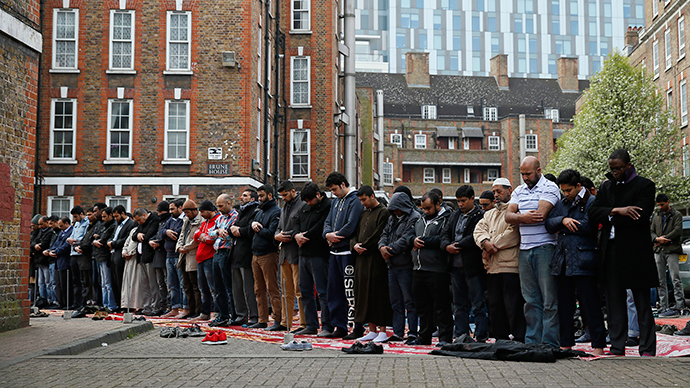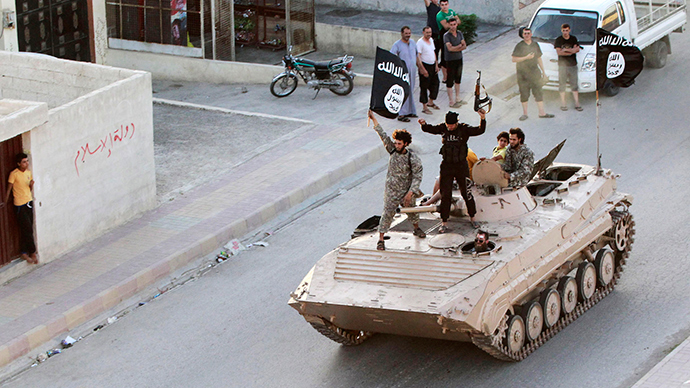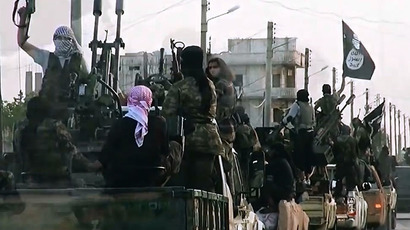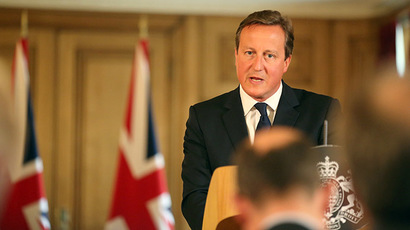British-born, rich & isolated Muslims more likely to be radicalized – study

Financially stable British-born Muslims who take their security for granted are most at risk of radicalization by terror groups, according to new research. Socially isolated and depressed Muslims are also identified.
The University of London study surveyed more than 600 Muslim men and women aged 18 to 45 living in East London and Bradford. The study, published in the online journal PLOS One, asked detailed questions about their personal lives and their views.
A scoring system measured each respondent’s level of sympathy with, or condemnation of, 16 terrorist attacks, including the use of suicide bombs.

Levels of condemnation toward violence and terrorism were found to be higher among respondents who maintained close ties with friends and family, and also among recent migrants to the UK, particularly those in poor health.
“Migrant groups are much stronger in condemning terrorism,” Kamaldeep Bhui, the study’s lead author, told the Independent.
“I think the most compelling argument for this is that recent migrants are dealing with a hard struggle and they’ve invested in coming here,” Bhui said. “They’ve got adversity to deal with and are not in a position where they can indulge some of the ideas of grievance. Whereas, people born and brought up here probably take for granted the security and safety where they live and the education and support.”
Researchers were surprised by the impact of wealth and social class on terrorist sympathies. Those who lived in poorer and more threatening areas appeared more resistant to radicalization than those living in more comfortable areas.
Those expressing sympathies with violence and terrorism frequently showed mild depressive symptoms. It is argued that extremist views are often exacerbated by social isolation, a sense of hopelessness and a pessimistic world view.
“The relationship between radicalisation and mental health is complex but we now know depression, alongside poor social networks and isolation, does play a role in vulnerability to radicalisation,” said Bhui.
He hopes the findings will encourage the British government to develop preventative policies to stop extremist views taking hold among vulnerable young people.
“We spend a great deal of time, effort and money on counter-terrorism – but virtually no attention is given to preventing radicalisation before it has a chance to take hold. We must change this approach and stop waiting for terrorism to happen before acting,” said Bhui.
“The violence we’re witnessing in Syria and Iraq are devastating examples of this – whereby seemingly ordinary British citizens have become radicalised enough to leave their lives in the UK and commit themselves to a hopeless future, and in some cases, commit atrocities against innocent people.”

Others are not convinced by the findings, and warn against profiling specific groups.
“What you don’t want to see is policy that specifically targets a minority age-specific group. That becomes very dangerous,” Dr Erin Marie Saltman, senior researcher at the counter-extremism think-tank Quilliam, told the Independent.
“You don’t want to go up to a 19-year-old second or third-generation British Muslim and say, ‘You’re prone to radicalisation’.
“We see females go out and become wives of jihadists and we see white people with no Muslim background who’ve gone to help jihadists. What you need to work on are the roots … we need to be teaching young people to have critical digital consumption habits and debunk myths about ideology.”
Approximately 500-1,000 Britons are thought to be fighting with ISIS in Iraq and Syria, according to the British government’s official estimates.
British fighters made headlines after videos were published online showing the beheading of US journalists James Foley and Steven Sotloff, and British aid worker David Haines.
In each of the videos, a man dubbed ‘Jihadi John’ by the British media threatens Britain and the United States with further reprisals in a distinctive London accent.
ISIS militants have threatened to behead another British aid worker, Alan Henning, and have released propaganda videos featuring British journalist John Cantlie.














